Related Research Articles
Methodism, also called the Methodist movement, is a Protestant Christian tradition whose origins, doctrine and practice derive from the life and teachings of John Wesley. George Whitefield and John's brother Charles Wesley were also significant early leaders in the movement. They were named Methodists for "the methodical way in which they carried out their Christian faith". Methodism originated as a revival movement within Anglicanism with roots in the Church of England in the 18th century and became a separate denomination after Wesley's death. The movement spread throughout the British Empire, the United States and beyond because of vigorous missionary work, and today has about 80 million adherents worldwide.

John Wesley was an English cleric, theologian, and evangelist who was a leader of a revival movement within the Church of England known as Methodism. The societies he founded became the dominant form of the independent Methodist movement that continues to this day.
James Harrison Rigg was an English nonconformist minister and Methodist educator.
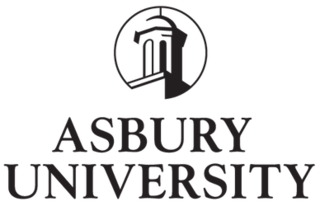
Asbury University is a private Christian university in Wilmore, Kentucky. Although it is a non-denominational school, the college is aligned with the Wesleyan-Holiness movement and is a member of the Wesleyan Holiness Connection. The school offers 50-plus majors across 17 departments. In the fall of 2016, Asbury University had a total enrollment of 1,854: 1,640 traditional undergraduate students and 214 graduate students. The campus of Asbury Theological Seminary, which became a separate institution in 1922, is located across the street from Asbury University.
The Methodist Church of Great Britain is a Protestant Christian denomination in Britain, and the mother church to Methodists worldwide. It participates in the World Methodist Council, and the World Council of Churches among other ecumenical associations.

Kingswood School is a private day and boarding school in Bath, Somerset, England. The school is coeducational and educates over 1,000 pupils aged 9 months to 18 years. It was founded by John Wesley, the founder of Methodism, in 1748, and is the world's oldest Methodist educational institution. The school was established to provide an education for the sons of colliers and Methodist ministers. It owns the Kingswood Preparatory School, the Upper and Middle Playing Fields and a number of other buildings.

Culford School is a co-educational private boarding and day school for pupils age 1–18 in the village of Culford, 4 miles (6 km) north of Bury St Edmunds in Suffolk, England. The head is traditionally a member of the Headmasters' and Headmistresses' Conference and the Prep School head is a member of the IAPS.
Kingswood College is a coeducational K–12 college located in the eastern Melbourne suburb of Box Hill South, Victoria, Australia. It began as New College in 1890, and was known as Box Hill Grammar from 1928 to 1965. Among other associations, it operates in association with the Uniting Church in Australia but is not governed or managed by the Church.
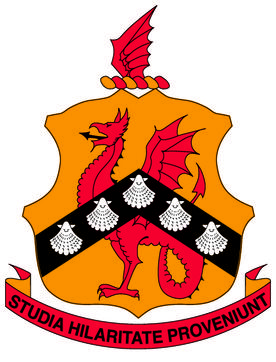
Kingswood College is an independent, co-educational Methodist school in Makhanda,. Founded in 1894 by William C Muirhead, Clifford Witheridge Dold, William Burnett Stocks and Richard Restall Stocks, Kingswood caters for boys and girls from Grade 000 to Grade 13 from all over the world.

Wesley House was founded as a Methodist theological college in Jesus Lane, Cambridge, England. It opened in 1921 as a place for the education of Methodist ministers and today serves as a gateway to theological scholarship for students and scholars of the Wesleyan and Methodist traditions from around the world. It was a founding member of the Cambridge Theological Federation, an ecumenical body of theological colleges in Cambridge which is affiliated to but independent of the University of Cambridge.

John Wesley's New Room is a historic building in Broadmead, Bristol, England. Opened in June 1739, it housed the earliest Methodist societies, and was enlarged in 1748. As the oldest purpose-built Methodist preaching house (chapel), it has been designated by Historic England as a Grade I listed building.
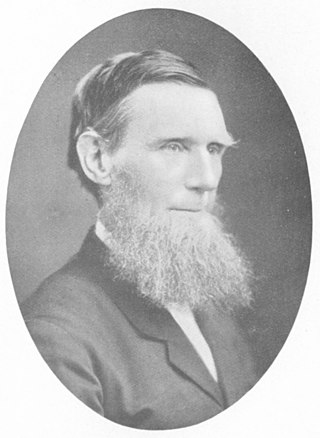
Joseph Horner Fletcher was a West Indies-born Methodist minister of English descent and was the founding Principal of Wesley College, Auckland and the second President of Newington College, Sydney. He was elected as first president of the NSW and Qld Wesleyan Methodist Conference and later as president of the General Conference of Australasia.
Herbert Brook Workman (1862–1951) was a leading Methodist and secretary of the Wesleyan Methodist Secondary Schools Trust when they took over Elmfield College in 1928.

Sir Robert William Perks, 1st Baronet was a British Liberal politician.
The Wesleyan Methodist Church was the majority Methodist movement in England following its split from the Church of England after the death of John Wesley and the appearance of parallel Methodist movements.
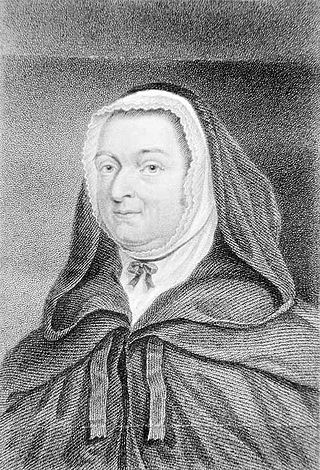
Mary Bosanquet Fletcher was an English preacher credited with persuading John Wesley, a founder of Methodism, to allow women to preach in public. She was born into an affluent family, but after converting to Methodism, rejected its luxurious life. She was involved in charity work throughout her life, operating a school and orphanage until her marriage to John Fletcher. She and a friend, Sarah Crosby, began preaching and leading meetings at her orphanage and became the most popular female preachers of their time. Fletcher was known as a "Mother in Israel", a Methodist term of honour, for her work in spreading the denomination across England.
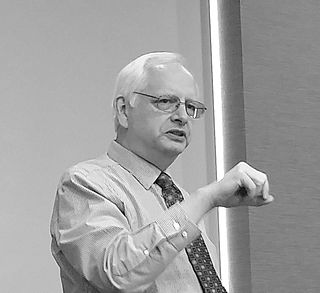
Randy L. Maddox is an American theologian and ordained minister in the United Methodist Church. He served until 2020 as the William Kellon Quick Professor of Wesleyan and Methodist Studies at Duke University. Maddox also serves as the General Editor of the Wesley Works Project, a major scholarly project responsible for producing the first comprehensive and critical edition of the works of John Wesley. He is considered one of the leading authorities on both the theology of John Wesley (1703-1791) and the theological developments of later Methodism.
Sarah Crosby was an English Methodist preacher, and is considered to be the first woman to hold this title. Crosby, along with Mary Bosanquet, are the most popular women preachers of Methodism. Scholars such as Paul Wesley Chilcote consider Crosby to be the busiest female Methodist preacher, as she preached up until the day she died. She was also renowned for being skilled at prayer, which at the time was seen as a sort of religious art form.
Sarah Ryan was a Methodist charity worker, best known for her controversial early life and for her charity work. Ryan was often criticized by her fellow Methodists because of her three 'marriages'. Despite her tarnished reputation, Ryan was very active in the Methodist Church. Notably, Ryan co-founded a Methodist orphanage/school named The Cedars with Mary Bosanquet Fletcher. Ryan's work at The Cedars was highly praised by John Wesley, the co-founder of Methodism.

Kenneth Brian Wilson OBE was a British theologian, philosopher and teacher. He was a Minister in the Methodist Church of Great Britain; Principal of Westminster College, Oxford; and wrote extensively in the areas of theology, philosophical theology and ecclesiology.
References
- ↑ "World Methodist Council elects Barrett as chairperson"
- ↑ "Rev. Dr. John Barrett Steps Down as Principal of ACS (International)"
- ↑ "Biographical details in Kingswood School newsletter"
- ↑ "Biographical details" Archived 2010-10-08 at the Wayback Machine
- ↑ "Biographical details in Kingswood School newsletter" Archived 2009-09-20 at the Wayback Machine